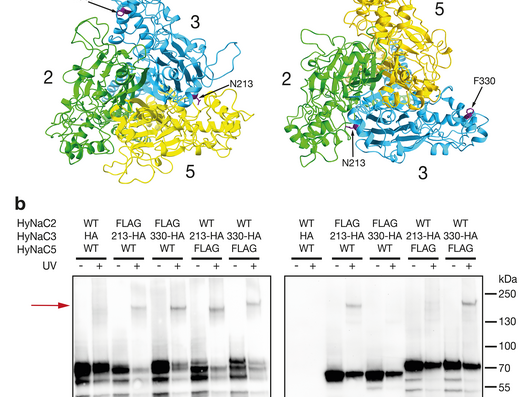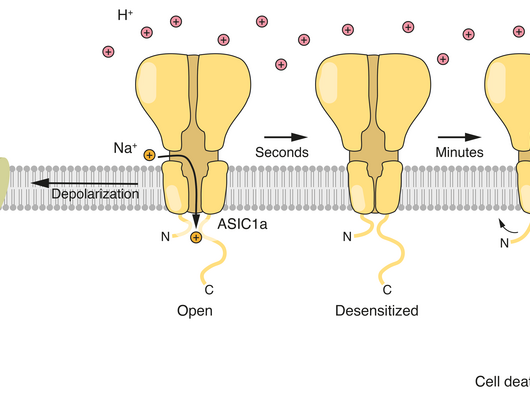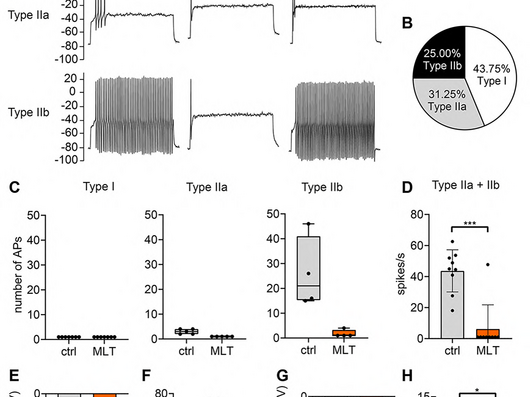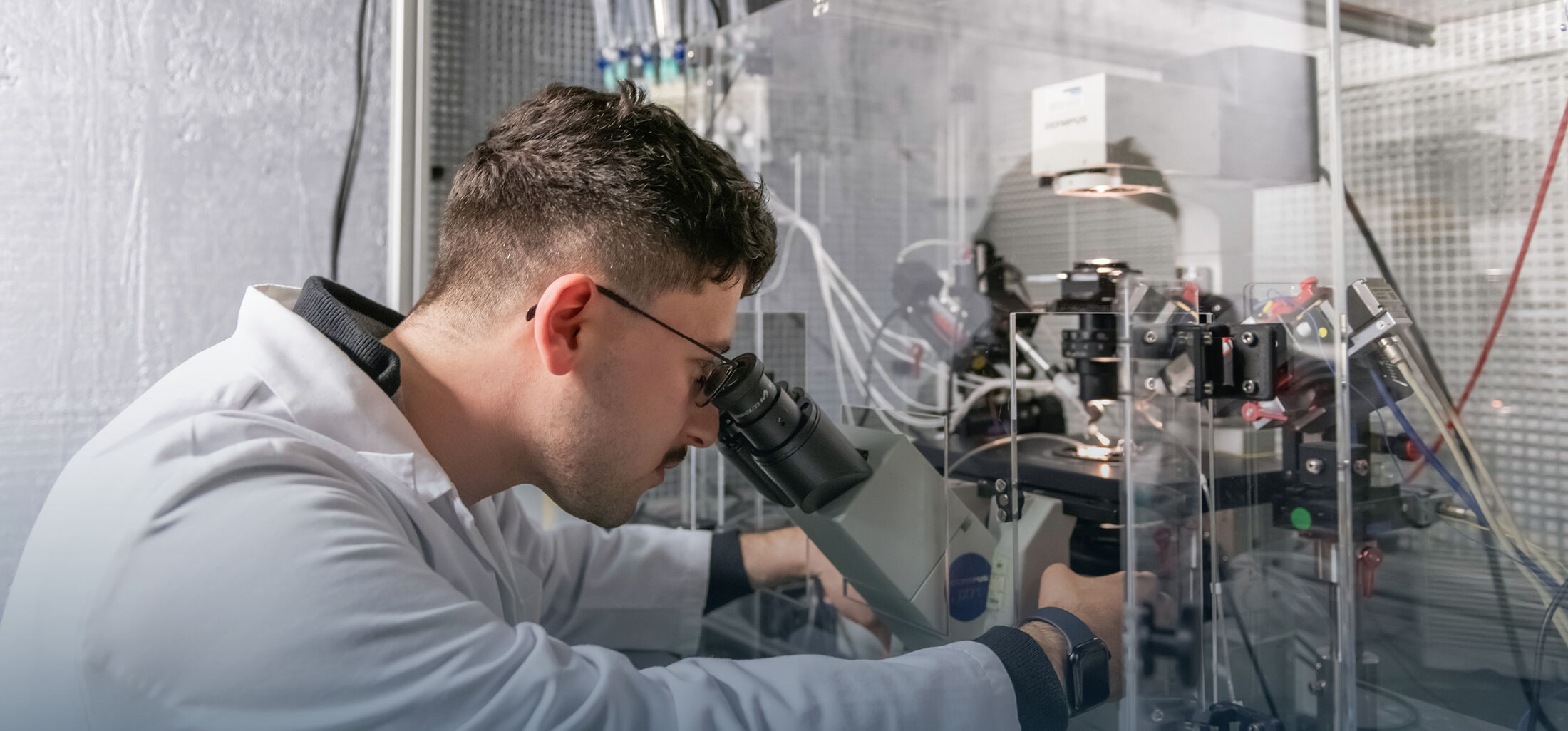Welcome to the Website of the Institute of Physiology!
The Institute of Physiology is one of three Physiological Institutes. Our research has a focus on ion channels. Ion channels are the basis of neuronal excitability and of communication between neurons. Mutations in ion channels can lead to diseases and malregulation of ion channels determines the clinical picture of many diseases. The analysis of ion channels in molecular detail contributes to a better understanding of their pathophysiological role and is the basis for an educated pharmacotherapy. In addition, the group of Khosrow Mottaghy works on artificial organs, in particular on extracorporeal circulation.
On our website you can find the most relevant information on us and on our research. We strive for a high quality in teaching. More information on our teaching and on the history of the Institute can be found here (in German only).
Yours sincerely
Stefan Gründer
News from the Institute of Physiology
News

02.04.2025 – Dr. Samuel Kühs comes from Lübeck University to work at the Institute of Physiology
On April 1st, Dr. Samuel Kühs started at the Institute of Physiology as a post-doctoral researcher. After finishing his M.Sc. in Neurosciences at Oldenburg University, he did his Ph.D. in the group of…

Ammar Hawashin successfully finished his MD thesis with highest honors
On March 31st 2025 our MD student Ammar Hawashin successfully passed the oral examination at the end of his thesis. His doctoral thesis is entitled „Modulation of Acid-Sensing Ion Channels by Tannic…

Stefan Gründer co-organizes first scientific meeting dedicated to acid-sensing ion channels
Together with Stephan Kellenberger from the University of Lausanne, Stefan Gründer organizes the first international scientific meeting dedicated to Acid-Sensing Ion Channels – ASIC 2025. ASIC 2025…

Dr. Michal Stawarski comes from Basel University to work at the Institute of Physiology
On December 2nd, Dr. Michal Stawarski started at the Institute of Physiology as a post-doctoral researcher. After finishing his PhD at the Nencki Institute for Experimental Biology in Warsaw, Poland,…

Identification of the ligand-binding pocket in a class of peptide-gated ion channels published in PNAS
Hydra Na+ channels (HyNaCs) are a group of peptide-gated ion channels that are closely related to Acid-Sensing Ion Channels (ASICs). In our latest study, which has been published in the Proceedings of…

Ilka Brakmann successfully finished her MD thesis
Today our MD student Ilka Brakmann successfully passed the oral examination at the end of her thesis. Part of the results of her doctoral thesis entitled „Acid-sensitive ion channels: analysis in…

31.08.2024 – Annual BBQ of the Gründer group
On a hot and sunny day, we gathered for the annual BBQ of the Gründer group. Thanks to everybody for making this a fun event!

Birgit Franzen celebrates 25 years at the Institute of Physiology
Today, Birgit Franzen, Secretary of the Institute of Physiology, celebrated 25 years at the Institute of Physiology. At this occasion, the entire institute gathered to thank her for her wonderful work…
![[Translate to en:]](https://www.ukaachen.de/fileadmin/files/global/_processed_/d/d/csm_News_Auszeichnung_Kreis_grau_da0589ee31.jpg)
German Research Foundation funds project on the ASIC1a proteome
In the next three years, the German Research Foundation funds with almost 400.000 Euro a project to characterize the proteome of the ASIC1a ion channel. The proteome comprises the entire set of…

Sven Kuspiel successfully defends his doctoral thesis
Today, our PhD student Sven Kuspiel successfully defended his doctoral thesis, in which he had analysed with electrophysiological methods the interaction of a new associated protein with Acid-Sensing…

What ist he role of acid-sensing ion channels in tumour cells??
Acid-sensing ion channels (ASICs) are proton-gated Na+-channels, which are normally expressed in neurons. However, also many tumour cells express ASICs. Because tumour cells thrive in an acidic…

High concentrations of the pineal hormone melatonin have profound effects on neuronal excitability
Melatonin is well known as “sleeping hormone”. In the USA and Canada, it is also sold as an over-the-counter dietary supplement and strong antioxidative effects and positive effects on diverse…












![[Translate to en:]](https://www.ukaachen.de/fileadmin/files/global/_processed_/d/d/csm_News_Auszeichnung_Kreis_grau_da0589ee31.jpg)



